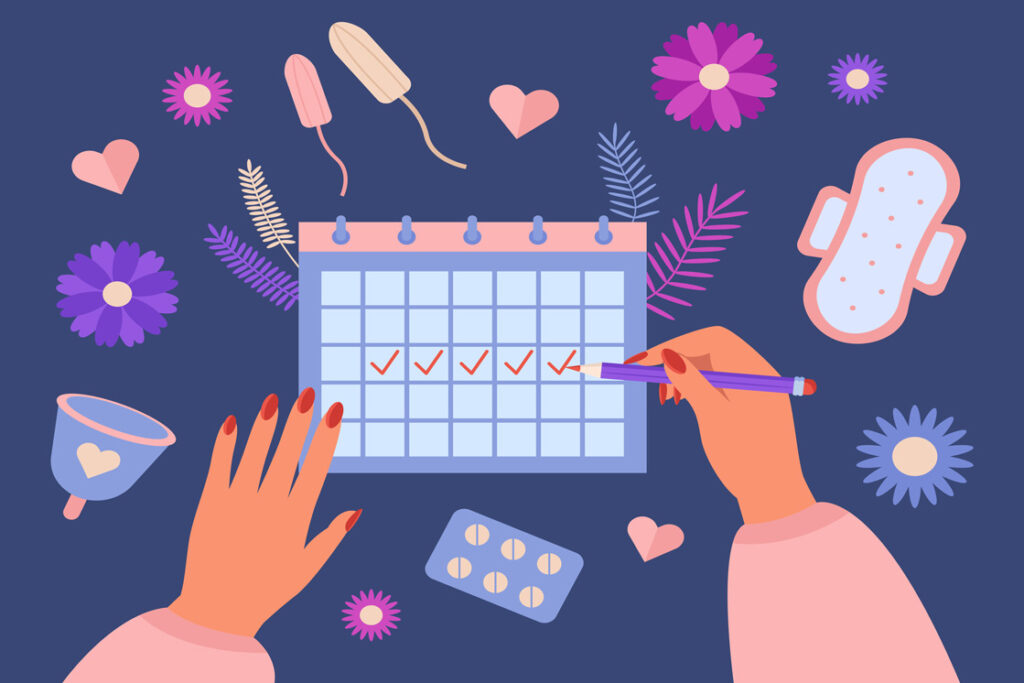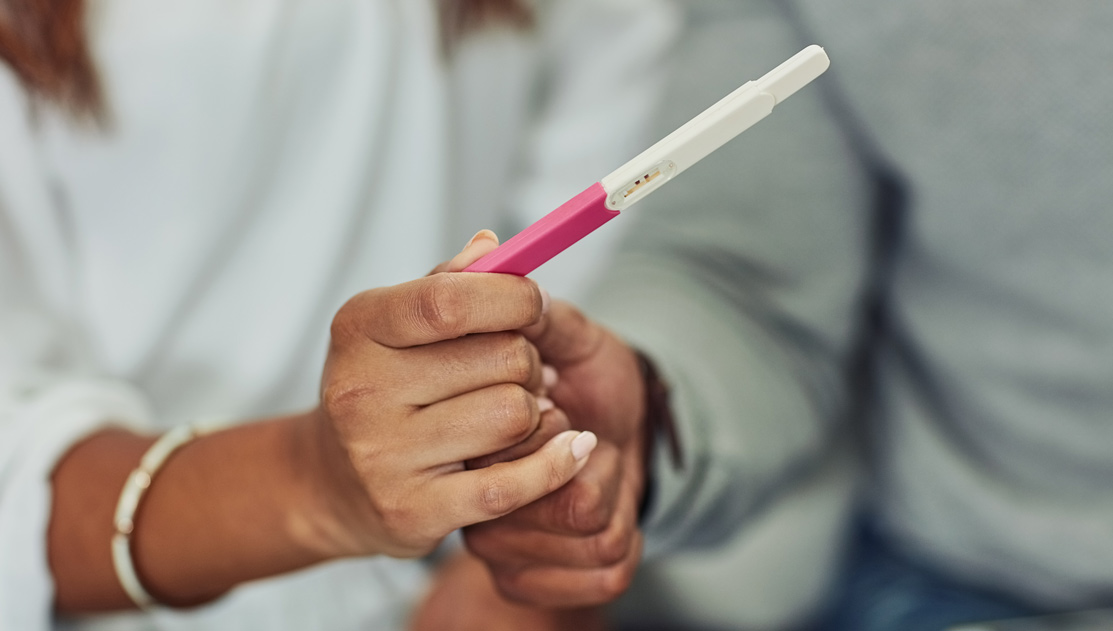Are periods related to fertility? When trying for a baby, one of the first signs of pregnancy on which many women rely is the absence of their period. This alone tells us that the menstrual cycle and fertility are intrinsically linked, but there is far more to this connection than signalling a successful or unsuccessful pregnancy.
Dr Anu Chawla, Fertility Specialist at the Fertility & Gynaecology Academy, explains, “while the absence of a period may signal pregnancy, this is not always the case. A missed or absent period can also signal amenorrhea caused by low body weight, stress, excessive exercise, and underlying conditions such as polycystic ovary syndrome (PCOS). This can mean quite the opposite of a pregnancy, with infertility being a cause for concern in the case of amenorrhea.”
In this article, we take a closer look at how your period affects your chance of getting pregnant, and answer common questions to help you understand more about your menstrual cycle.
What could a missed period mean?
There are many things that a missed period could signify, from pregnancy to problems with fertility. An experienced gynaecologist will be able to identify the cause of missed or irregular hormones through simple tests or examinations.
How do I know if I’ve missed a period? Calculating your menstrual cycle is simple: count from the first day of your last period to the first day of the next. A typical menstrual cycle lasts 21 to 35 days, though some may be longer or shorter. If your next period does not arrive after 35 days, it may be late or missed.
Common causes of missed periods include:
- Pregnancy – as we have already covered, a missed period could mean that you are pregnant.
- Stress – this is one of the most common reasons for a missed period, and can often happen when you are trying for a baby and are stressed or anxious about being able to conceive.
- Body weight is too low or too high – when a woman’s body weight is too low, she may stop ovulating. This is sometimes the case for those with anorexia or bulimia, as well as athletes with extremely low body fat percentages. On the other side of the spectrum, those who are obese may experience hormonal changes that could prevent menstruation.
- Polycystic ovary syndrome (PCOS) – PCOS is a common condition thought to affect around 1 in 10 women. It is characterised by excess androgen (male) hormones, polycystic ovaries (ovaries containing fluid filled sacs around the eggs), and irregular periods.
- Chronic diseases – diseases that cause inflammation or impact the endocrine system, such as coeliac disease and diabetes, can cause missed periods.
- Starting or stopping the use of birth control – hormonal birth control can cause irregular or missed periods in the months after you start or stop taking it. Although each person’s experience with hormonal birth control varies, you should see your doctor if this continues for more than a few months, as you may need to be moved to a different type of birth control.
- Thyroid problems – the thyroid gland is situated in the throat and its job is to regulate your metabolism. An overactive or underactive thyroid gland can cause weight loss or weight gain respectively, as well as affecting hormone levels, both of which can interfere with period regularity.
Less common causes of missed periods include early menopause; pituitary tumours (which do not always indicate cancer); and ectopic pregnancy, which may not show up on a pregnancy test.
Period heaviness: Is it connected to fertility?
Light periods: If you have very light periods, you may be wondering, ‘If I have light periods does it mean I am less fertile?’. The answer to this is complicated. A light period is a period that lasts less than two days, and there is very little blood during this time. Light periods do not usually mean that you are less fertile, but it can make it more difficult for you to get pregnant. This is because a light period can indicate that your endometrial lining (the lining in your uterus) is not very thick, and therefore it is less likely that a fertilised egg can implant within the lining. If a fertilised egg does not implant, the process of pregnancy cannot continue.
Heavy periods: So, do heavier periods mean you’re more fertile? No. Heavy periods are characterised by heavy and/or prolonged bleeding that can fill a sanitary towel or tampon within a couple of hours, and can actually indicate an issue such as endometriosis or chronic inflammatory disease, which can cause problems with fertility.
Spotting: Spotting occurs when there is bleeding outside of your period. Spotting can occur due to hormonal imbalance, physical conditions such as fibroids, polyps or pelvic inflammatory disease (PID), or a sexually transmitted infection (STI), and is particularly common during puberty or perimenopause. Conditions that cause spotting can lead to difficulties conceiving; however, spotting doesn’t always mean that something is seriously wrong. Sometimes, spotting can occur due to vaginal dryness or sexual intercourse that is rougher than usual. Light spotting can also be an early indication of pregnancy.
Regular periods: Do regular periods mean good fertility? If you experience normal, regular periods that, more often than not, arrive on time, there is a good chance that you are fertile. However, this is not always the case. If you have normal periods and you are failing to conceive, there could be another condition causing infertility, such as an STI, age-related decline in fertility, or your partner could be infertile.
Can I get pregnant just after my period has finished?
It is possible to get pregnant just after your period has finished, although the chances are low. This can happen if you have a short menstrual cycle and you ovulate early, and you have unprotected sex during or just after your period.
Although ovulation usually takes place around 12 to 14 days into your cycle, you should have sex throughout your cycle if you are trying to conceive, as sperm can live in the body for up to seven days.
For this very reason, those who are avoiding pregnancy should use protection during intercourse throughout their cycle.
Have a query about your period and your fertility?
If you are experiencing periods that are abnormal for you, it’s advisable to book an appointment with your doctor, especially if you are trying to get pregnant.
At the Fertility & Gynaecology Academy, we can carry out thorough investigations for cases of infertility, and offer treatments based on our diagnosis. To book an appointment with one of our experienced fertility consultants, call us on 020 7224 1880 or email info@fertility-academy.co.uk. Alternatively, click here to book online.







